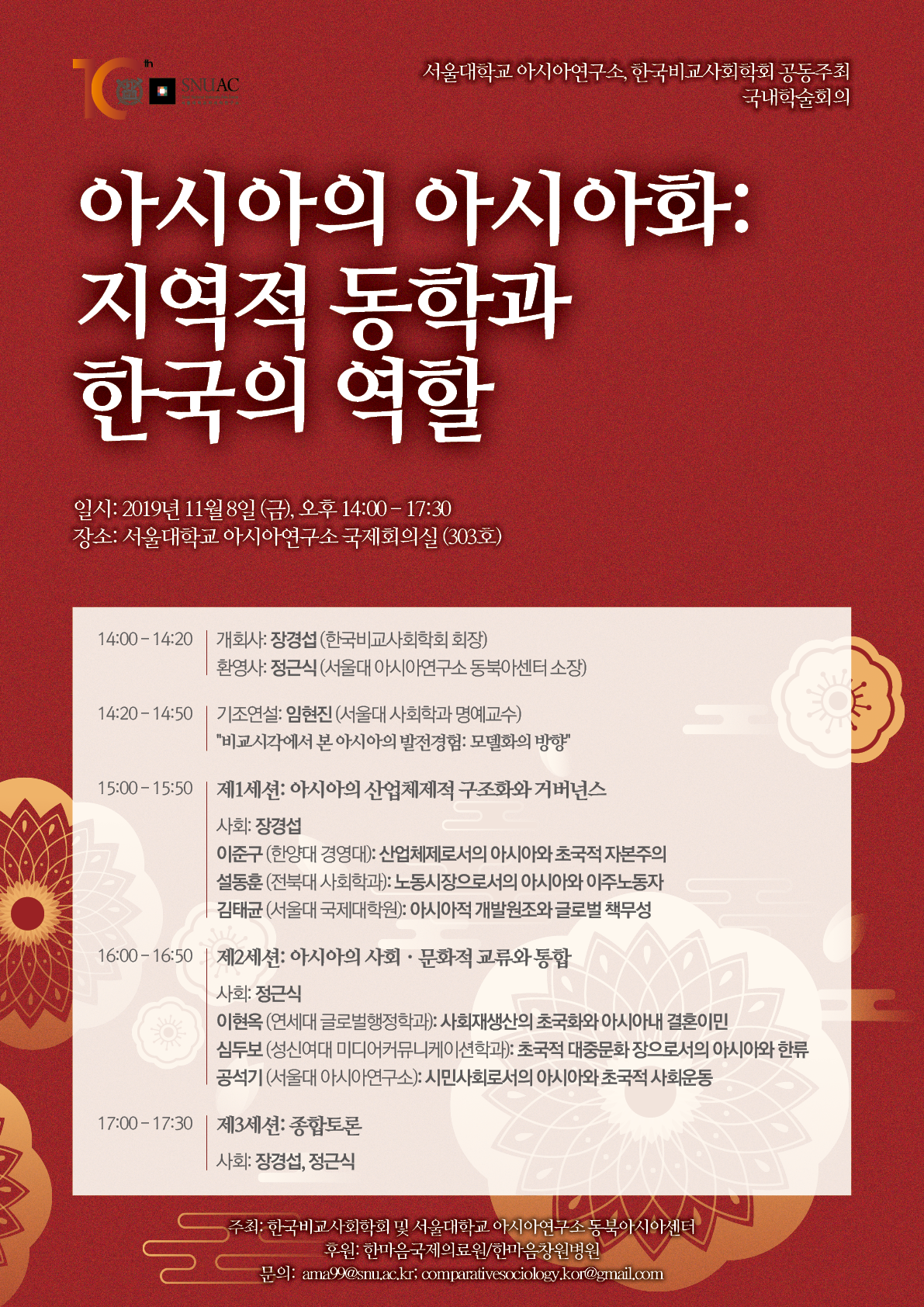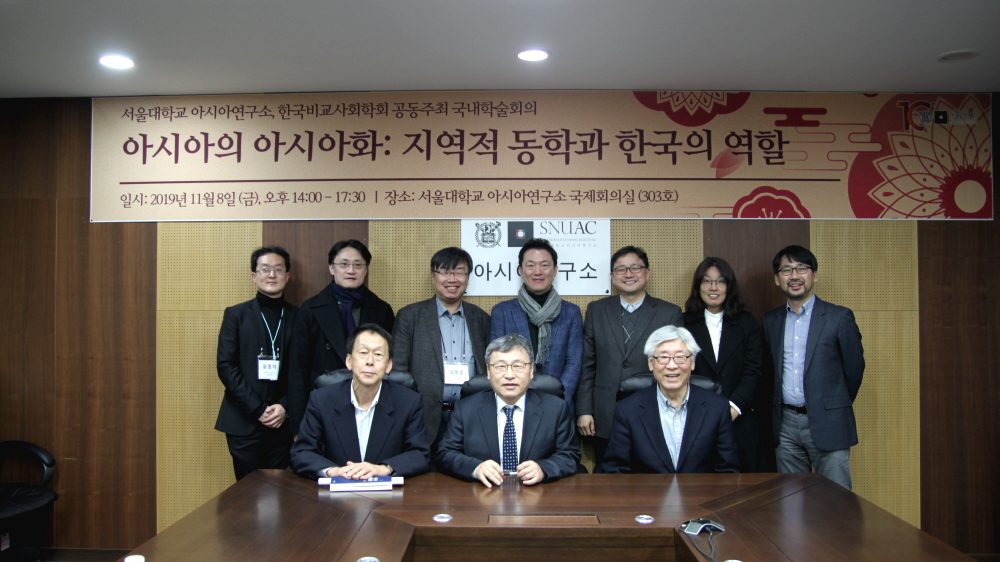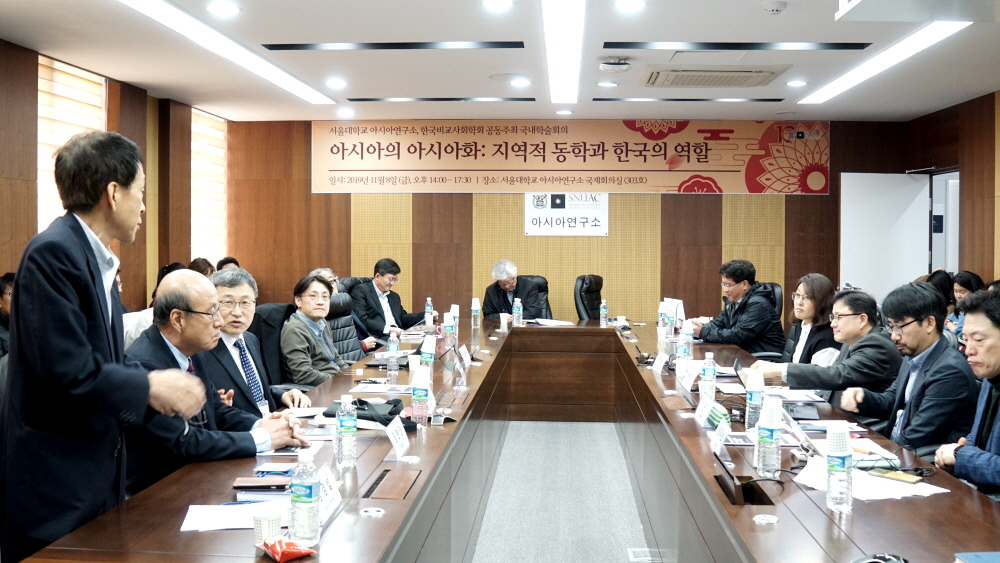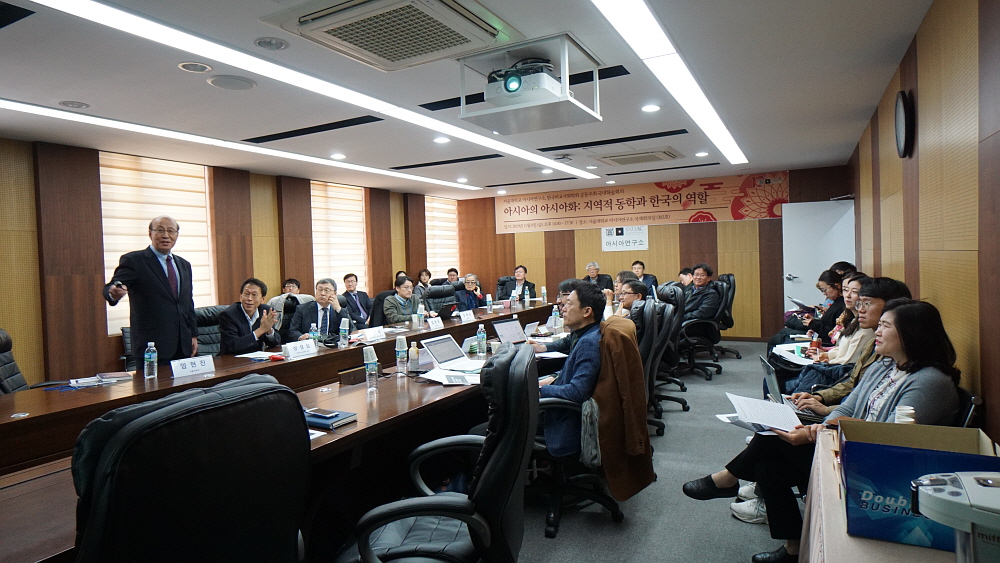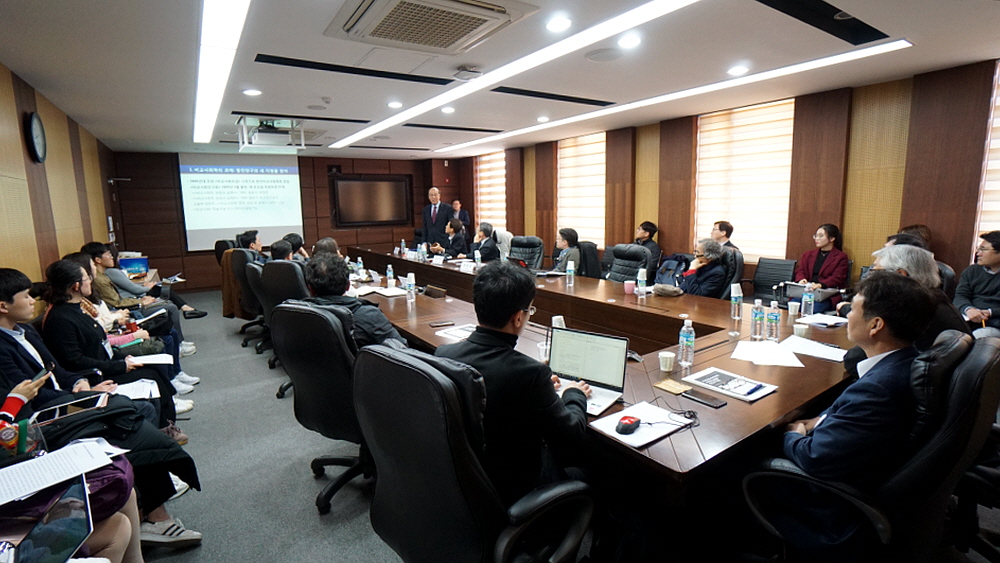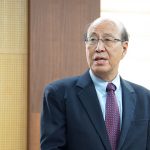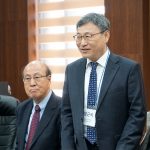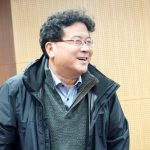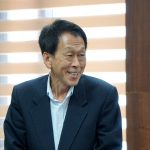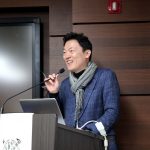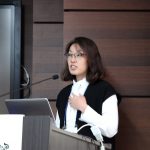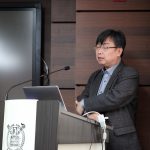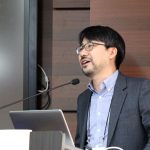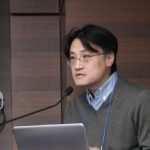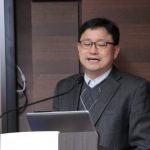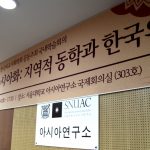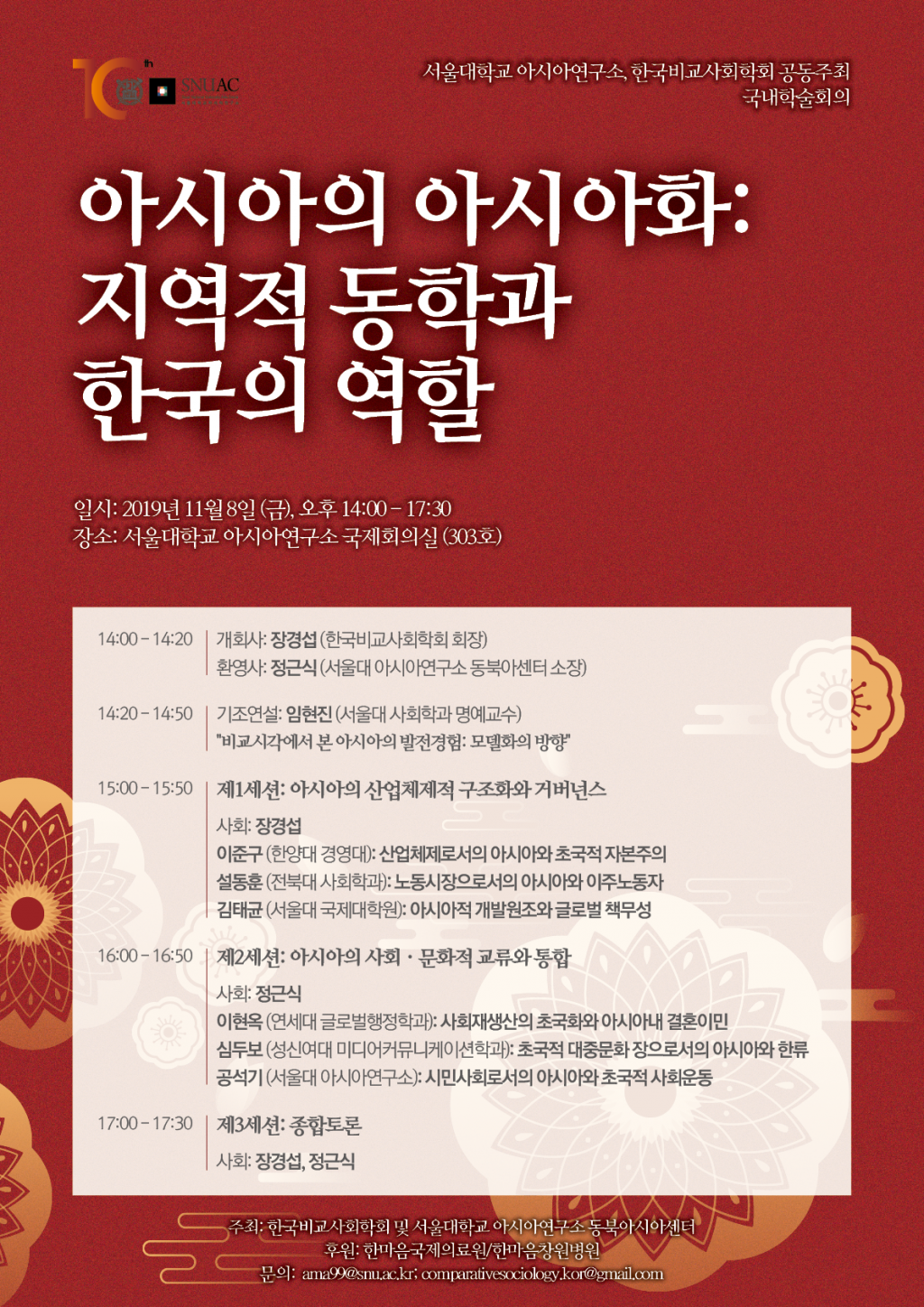
Asiaization of Asia: Regional Dynamics and the Role of Korea
- Date: November 8th, Friday, 2019 14:00-17:30
- Place: Room 303, SNUAC (Bldg.101)
Asiaization of Asia: Regional Dynamics and the Role of Korea
Having spent the last moment of the 20th century in a collective financial crisis under the influence of Western financial capital, Asian countries in the 21st century are again showing economic and social vitality that forms the so-called Asian Era. In this process, Asia is now being reborn as a social formation with active exchange and integration in the region in terms of states, societies, corporations, and citizens. Asia, which was subject to artificial territorialization by the West, is substantially Asiaizing. This requires innovation of theory and methods that go beyond the existing methodological nationalism of social sciences in the academic aspect, especially calling for systematic Asian studies with Asia as the unit of analysis. In fact, many domestic scholars have performed analysis on such Asiaization in various research fields, but the attempts at recognition and practice of mutual social-scientific subsidiarity have not been sufficient. In this context, the Korean Association of Comparative Sociology and SNUAC Northeast Asia Center is holding a joint academic conference on Friday, November 8th 2019, with the topic “Asiaization of Asia: Regional Dynamics and the Role of Korea”. We hope to promote the building of systematic Asian studies through organic exchange and cooperation of researchers in diverse areas on Asia(ization). The presenters will share their research backgrounds and experiences, and discuss the connotations of core results on Asiaization and Asia studies. We look forward to your participation.
SNUAC Northeast Asia Center held a joint academic conference with the Korean Association of Comparative Sociology on November 8th, 2019. This conference, under the topic of “Asiaization of Asia: Regional Dynamics and the Role of Korea”, was sponsored by Hanmaeum International Medical Center and Hanmaeum Changwon Hospital.
Following the opening speech and welcome speech by Chang, Kyung-sup, president of the Korean Association of Comparative Sociology, and Jung, Keun-Sik, director of SNUAC Northeast Asia Center, a congratulatory speech was given by SooJin Park, director of SNUAC. In the keynote speech, Hyun-Chin Lim, the founding director of SNUAC, historically examined development studies and the experience of Asian development with the topic “Rising and Regional Exchange of Asia, and the Role of Korea” presented prospects of development through theoretical and methodological approaches.
This conference focused on the Asiaization through active exchange and integration in the region and suggested that there is a need to seek innovation beyond methodological nationalism, and systematic Asian studies with Asia as its unit of analysis. In hoping to promote the building of systematic Asian studies through organic exchange and cooperation of researchers in diverse areas on Asia(ization), the presenters especially discussed Asian studies through the experiences and perspective of Korea.
There were two sessions organized, with the first session on “Asia’s industrial-systematic structuralization and governance” and the second on “Asia’s sociocultural exchange and integration”. In session 1, presentations on ‘Asia as an Industrial System and Transnational Capitalism’ (Lee, Joon-Koo), ‘Asia as Labor Market and Migrant Workers’ (Seol, Dong-Hoon) and ‘Asian Developmental Assistance and Global Accountability’ (Kim, Taekyoon) examined and surveyed the issue of re-structuralization of Asia and building of new governance. Presentations in session 2 were on ‘Transnationalization of Social Reproduction and Marriage Migration in Asia’ (Lee, Hyunok), ‘Asia as a Transnational Field of Popular Culture, and the Korean Wave’ (Shim, Doobo), and ‘Asia as Civil Society and Transnational Social Movement’ (Kong, Suk-ki), which examined and surveyed the issue of regional and inter-regional integration that has emerged along with the ever-closer sociocultural exchange in Asia. The conference concluded in success as the researchers promised to continue their efforts of seeking systematic Asian studies through close cooperation and exchange among them.

